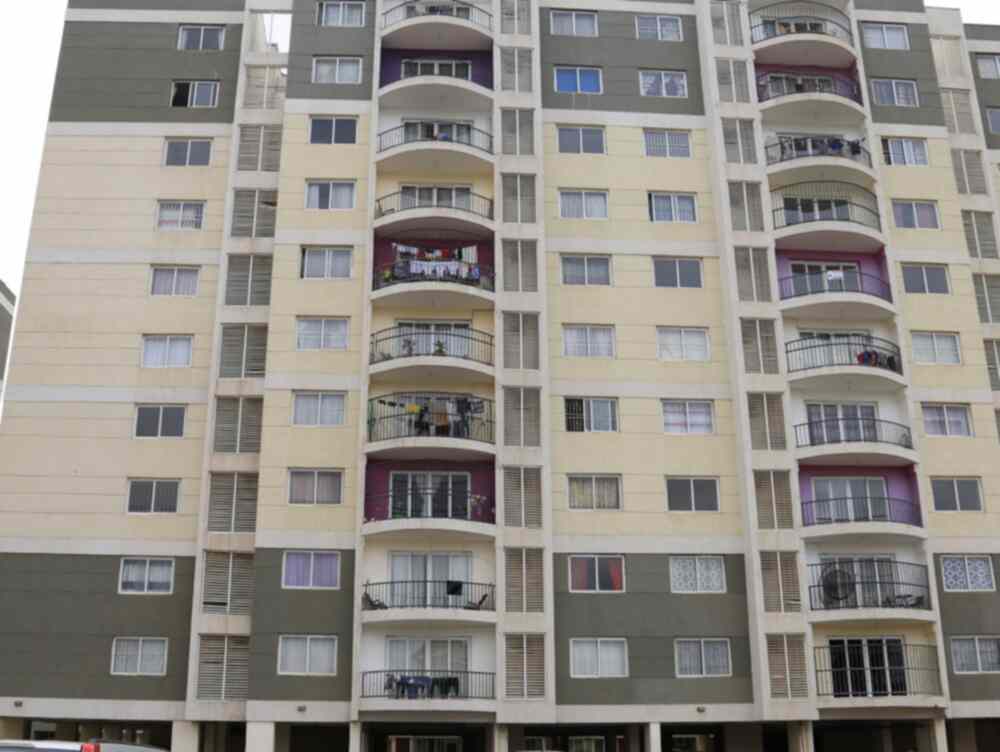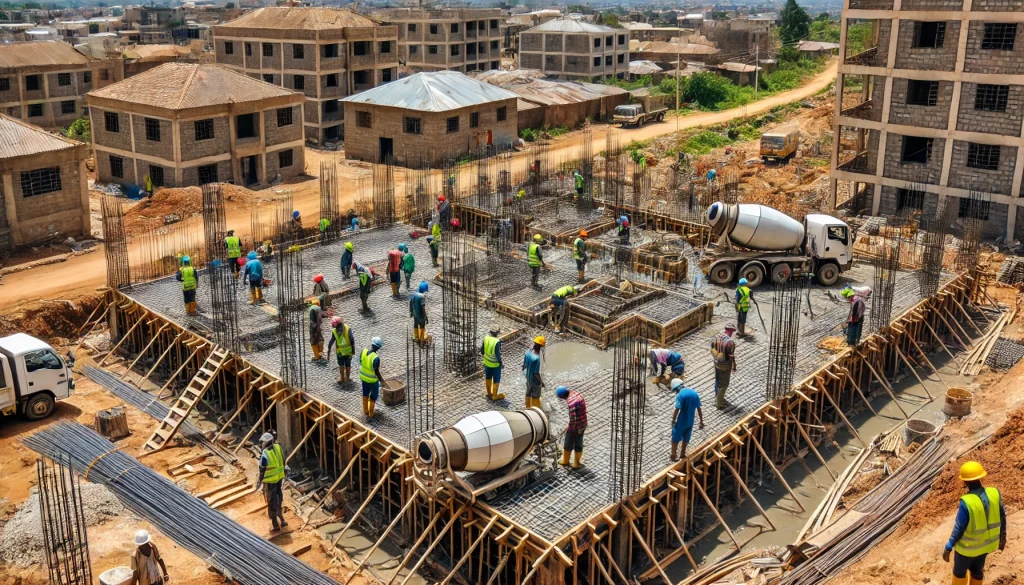Introduction
Overview of Kenya’s Real Estate Landscape in 2025
The Kenya real estate market trends 2025 show a dynamic shift in property demand across urban and peri-urban areas. Investors are increasingly looking at satellite towns, affordable housing, and smart home developments as lucrative opportunities. With infrastructure projects expanding and financing options improving, the market is becoming more attractive for both local and international buyers.
Significance of Understanding Market Trends for Investors and Buyers
Understanding current market trends enables investors to make informed decisions and mitigate potential risks. Knowing which areas are growing, the demand for commercial vs. residential properties, and emerging trends like REITs and green homes can significantly impact returns. For buyers, this knowledge ensures they invest in properties that appreciate over time and align with their lifestyle needs.

Macroeconomic Factors Shaping the Real Estate Market
Economic Growth Projections and Their Impact on Real Estate
The Kenya real estate market trends 2025 are closely tied to the country’s economic growth. Rising GDP and business activity in urban centres like Nairobi and Mombasa are driving demand for both residential and commercial properties. Investors benefit from understanding which regions are expanding fastest, as these areas tend to offer higher returns.
Government Policies and Infrastructure Developments
Government policies and infrastructure projects play a major role in shaping the property market. Initiatives such as affordable housing programs, urban planning regulations, and new transport networks increase land value and attract developers. These policies also make investment in satellite towns and peri-urban areas more appealing.
Interest Rates, Inflation, and Financing Dynamics
Interest rates, inflation, and financing conditions directly affect property affordability and investor confidence. Low interest rates make mortgages more accessible, increasing housing demand, while rising inflation can impact construction costs and property prices. Staying informed about these economic factors helps investors and buyers plan strategically.
Related post: Structural Engineering Services in Kenya — Costs & Benefits
Emerging Real Estate Trends in 2025
Rise of Smart Homes and Sustainable Developments
The Kenya real estate market trends 2025 show a growing demand for smart homes and eco-friendly properties. Homebuyers and investors are prioritising energy-efficient designs, solar-powered utilities, and modern technology integration, making these properties more attractive and future-proof.
Growth of Satellite Towns and Peri-Urban Areas
Satellite towns like Juja, Kitengela, and Ruaka are experiencing rapid development. Lower land prices and improved infrastructure make these areas appealing for both residential and commercial investments, creating significant growth opportunities outside Nairobi’s city centre.

Increased Demand for Affordable Housing Solutions
Affordable housing continues to be a major trend in 2025. Developers are responding to high demand by offering budget-friendly homes in emerging towns, often supported by government initiatives and favourable financing schemes.
Related post: Cost of Land in Kiambu vs Machakos Counties (2025 Guide & Comparison)
Popularity of Real Estate Investment Trusts (REITs)
REITs are gaining popularity as a low-risk way to invest in Kenya’s property market. They allow investors to earn rental income and capital appreciation without directly owning property, making them ideal for both new and experienced investors.
Key Real Estate Segments to Watch
Residential Market: Urban vs. Suburban Preferences
The Kenya real estate market trends 2025 show a clear shift in residential preferences. Urban areas like Nairobi CBD continue to attract high-end apartments and townhouses, while suburban and satellite towns see growing demand for affordable family homes. Investors should consider population growth, transport links, and amenities when choosing where to invest.
Commercial Properties: Office Spaces and Retail Developments
Commercial real estate is evolving with increased demand for office spaces, co-working hubs, and modern retail developments. Companies are moving to strategic areas with good infrastructure, and retail developments in high-traffic zones are attracting investors looking for stable rental income.
Industrial Real Estate: Growth in Logistics and Warehousing
Industrial real estate is expanding due to the growth of e-commerce, manufacturing, and logistics. Warehouses and distribution centres in key industrial hubs like Athi River, Ruiru, and Thika are increasingly in demand, offering strong returns for investors.
Related post: Modern 3-Bedroom Maisonette Designs in Kenya: Plans, Costs & How to Build
Investment Opportunities and Risks
High-Growth Areas for Real Estate Investment
The Kenya real estate market trends 2025 highlight several high-growth areas for property investment. Satellite towns like Kitengela, Ruaka, and Juja are attracting both residential and commercial developers due to lower land prices and improved infrastructure. Urban hotspots like Westlands and Kilimani remain strong for premium investments, offering potential for capital appreciation.
Potential Risks and Mitigation Strategies
Investors need to be aware of risks such as fluctuating property prices, regulatory changes, and high construction costs. Mitigation strategies include conducting thorough due diligence, choosing established developers, and diversifying investments across different property types and locations.

Tips for First-Time Investors
First-time investors should start small, focus on emerging areas with high growth potential, and explore options like REITs for lower-risk entry. Engaging local property experts and staying updated on the Kenya real estate market trends 2025 can improve investment outcomes and reduce exposure to risks.
Legal and Regulatory Considerations
Land Ownership Laws for Local and Foreign Investors
Understanding land ownership laws in Kenya is essential for both local and foreign investors. Foreigners can invest in leasehold properties but are generally restricted from owning freehold land. Compliance with these laws ensures secure property transactions and reduces legal risks.
Understanding Leasehold vs. Freehold Titles
Kenya’s property market distinguishes between leasehold and freehold titles. Freehold gives full ownership rights, while leasehold grants land use for a fixed period, typically 99 years. Knowing the differences helps investors choose properties that align with long-term plans.
Related post: 3-Bedroom House Plans in Kenya – Designs & Cost
Navigating the Land Tenure System in Kenya
The land tenure system in Kenya affects how property is bought, sold, and developed. Investors should understand county regulations, land registration processes, and potential encumbrances to avoid disputes and ensure smooth transactions.
Related post: What Kind of Apartment Can I Build with Kshs.70M in Isinya?
Impact of Demographic Shifts on Housing Demand
Influence of Millennials and Gen Z on Housing Preferences
The Kenya real estate market trends 2025 are shaped by the preferences of Millennials and Gen Z. These groups prefer modern apartments, co-living spaces, and smart homes with technology integration. Developers are increasingly designing properties to meet these lifestyle and affordability needs.
Urbanisation Trends and Their Effect on Housing Markets
Rapid urbanisation in cities like Nairobi and Mombasa is driving demand for both residential and commercial properties. As more people move to urban centres, satellite towns and suburban areas are also growing in popularity due to lower land costs and better living environments.
Related post: House Construction Costs in Kenya 2025 – Full Breakdown
Role of the Kenyan Diaspora in Real Estate Investment
The Kenyan diaspora plays a significant role in the real estate market, investing in both residential and commercial properties. Diaspora investors often focus on high-return urban developments and affordable housing projects, contributing to overall market growth.

Technological Innovations in Real Estate
Adoption of PropTech in Property Management and Sales
The Kenya real estate market trends 2025 show growing adoption of PropTech solutions. Property management software, automated listing platforms, and digital marketing tools are helping developers and agents streamline sales and operations, making it easier for buyers to access reliable property information.
Virtual Tours and Online Property Transactions
Virtual tours and online property transactions have become increasingly popular, allowing buyers to explore homes and commercial spaces remotely. This technology improves convenience, reduces physical visits, and accelerates decision-making for investors and homebuyers alike.
Blockchain Technology in Property Transactions
Blockchain technology is slowly transforming property transactions in Kenya by providing secure, transparent, and tamper-proof records. Investors benefit from reduced fraud risks and faster property registration processes, enhancing trust in the real estate market.
Market Outlook and Future Projections
Short-Term and Long-Term Market Forecasts
The Kenya real estate market trends 2025 indicate steady growth in both the short and long term. Residential demand is expected to rise in urban and satellite towns, while commercial and industrial sectors benefit from infrastructure projects and economic expansion. These forecasts help investors plan strategic property acquisitions.
Factors Influencing Future Market Dynamics
Several factors will shape the market’s future, including government policies, interest rates, urbanisation, and technological adoption. Developers and investors must monitor these trends to capitalise on opportunities and mitigate risks effectively.
Expert Opinions and Market Sentiments
Real estate experts predict that demand for affordable housing, smart homes, and commercial properties will continue to grow. Market sentiment suggests strong investment potential in emerging towns and high-demand urban areas, offering profitable returns for strategic investors.
Related post: The Impact of Inflation on Property Prices in Kenya

Conclusion
Summary of Key Market Trends
The Kenya real estate market trends 2025 highlight strong growth across residential, commercial, and industrial sectors. Emerging satellite towns, smart homes, affordable housing, and technological innovations are shaping the market. Investors and buyers who stay informed about these trends are better positioned to make profitable decisions.
Strategic Recommendations for Investors and Buyers
To capitalise on current opportunities, investors should focus on high-growth areas, diversify property types, and monitor macroeconomic factors. Buyers should prioritise emerging towns, affordable developments, and projects with strong infrastructure support. Engaging local experts and staying updated on the Kenya real estate market trends 2025 will ensure informed decisions and reduced risk.
Related post: Affordable Housing Projects in Kenya – Opportunities & How to Benefit
Frequently Asked Questions (FAQ)
- What are the major real estate trends in Kenya in 2025?
The Kenya real estate market trends 2025 include growth in satellite towns, increased demand for affordable housing, smart homes, and rising interest in REITs. These trends are shaping investment and buying decisions.
- Which areas in Kenya offer the best property investment opportunities in 2025?
High-growth areas include Nairobi suburbs, Westlands, Kilimani, and emerging satellite towns like Kitengela, Juja, and Ruaka. These locations benefit from infrastructure development and increasing demand.
- How will government policies impact property prices in Kenya this year?
Policies on affordable housing, land ownership, and urban planning affect property prices and investment returns. Investors must monitor regulations to make informed decisions.
- What types of properties are in the highest demand in Kenya in 2025?
Residential apartments, affordable housing units, smart homes, commercial offices, and industrial warehouses are highly sought after in 2025.
- Are Real Estate Investment Trusts (REITs) profitable in Kenya?
REITs provide a low-risk way to invest in property and earn rental income and capital appreciation. They are ideal for investors seeking exposure without directly buying property.
- How is the growth of satellite towns affecting Nairobi’s real estate market?
Satellite towns like Ruaka, Kitengela, and Juja are easing pressure on Nairobi’s urban property demand, offering affordable alternatives and strong investment potential.
- What risks should investors be aware of in the Kenyan property market?
Risks include fluctuating property prices, regulatory changes, high construction costs, and market saturation. Due diligence and diversification are essential for mitigation.
- How can I finance property purchases in Kenya in 2025?
Financing options include mortgages from banks, housing loans, and investments through REITs. Understanding interest rates, inflation, and loan terms is critical before committing.






20 thoughts on “Kenya Real Estate Market Trends 2025”